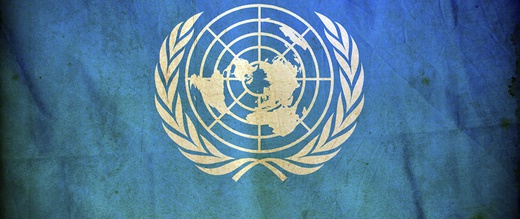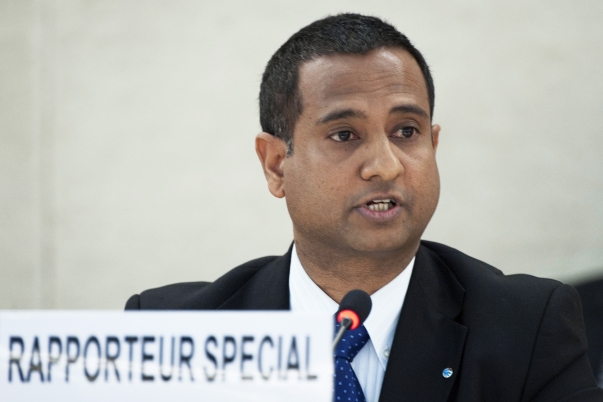 GENEVA — Overall, human rights in Iran have not improved substantially since the election of President Hassan Rouhani last year, despite his promises to grant citizens more rights and to end discriminatory practices, according to Ahmed Shaheed, the UN special rapporteur on human rights in Iran.
GENEVA — Overall, human rights in Iran have not improved substantially since the election of President Hassan Rouhani last year, despite his promises to grant citizens more rights and to end discriminatory practices, according to Ahmed Shaheed, the UN special rapporteur on human rights in Iran.
In a presentation to the Human Rights Council yesterday, Dr. Shaheed said that while Iran had made a few positive steps towards strengthening human rights, the government continues to violate international legal standards, oppress women, and persecute ethnic and religious minorities, including members of the Baha’i Faith.
“Hundreds of individuals reportedly remain in some form of confinement for exercising their fundamental rights, including some 39 journalists and bloggers, 92 human rights defenders, 136 Baha’is, 90 Sunni Muslims, 50 Christians, and 19 Dervish Muslims,” Dr. Shaheed said.
The session marked the formal presentation of his annual report to the Council. In that report, which was issued last week, and before the Council yesterday, Dr. Shaheed noted that while Iran’s proposed charter of citizen’s rights is “a step in the right direction,” it nevertheless “falls short of strengthening protections for the equal enjoyment of human rights for women and members of the country’s religious and ethnic minority communities.”
“It also fails to address the use of cruel, inhumane or degrading punishment, including flogging, hanging, stoning and amputation.”
“The charter does not ban the execution of juveniles and also fails to address concerns about the use of capital punishment, in particular for offenses that do not meet the standards for most serious crimes under international law,” Dr. Shaheed said.
Last week, UN Secretary General Ban Ki-moon also released his annual report to the Council on human rights in Iran. He said that he found no improvements for Baha’is and other religious minorities, and few improvements in Iran’s human rights situation overall.
“There have been no improvements in the situation of religious and ethnic minorities, who continue to suffer severe restrictions in the enjoyment of their civil, political, economic, social and cultural rights,” said Mr. Ban. “Religious minorities such as Baha’is and Christians face violations entrenched in law and in practice.”
Yesterday, during Dr. Shaheed’s presentation, known as an interactive dialogue, country delegations and non-governmental organizations were allowed to respond and ask questions.
At least nine countries specifically expressed concern about the ongoing persecution of Iranian Baha’is. They included Australia, Belgium, Botswana, France, Germany, Ireland, Switzerland, the United Kingdom, and the United States. The European Union, in its statement, also mentioned the Baha’is.
Ireland said: “The situation of members of religious minorities continues to be of concern.”
“We note in particular the information contained in the Special Rapporteur’s report on the situation of the Baha’is, including that they are regularly prosecuted for participation in their community affairs, including by facilitating educational services and publicly engaging in religious practices, such as attending devotional gatherings, but that they are typically charged with political or security crimes, such as espionage or ’propaganda against the ruling system.’”
Botswana said: “We also ask Iran to eliminate discrimination against religious minorities, including Baha’is.”
Switzerland asked why Baha’is are “subjected to growing oppression, despite the fact that they are very discreet in Iran” and are “not critical of the government.”
Diane Ala’i, the representative of the Baha’i International Community to the United Nations in Geneva, also participated in the session, as did a number of other NGO representatives.
“To date, there has been no improvement in the situation of Iranian Baha’is,” Ms. Ala’i said, addressing Dr. Shaheed. “As you indicated yourself, 136 Baha’is are in prison solely on religious grounds, not one Baha’i youth has been able to complete his or her studies in an Iranian university and most of them are denied access in the first place, shops continue to be sealed, work in the public sector is prohibited, cemeteries are desecrated, and incitement to hatred in state-sponsored media is rampant.”


















Comments
Sign in or create an account
Continue with Facebookor